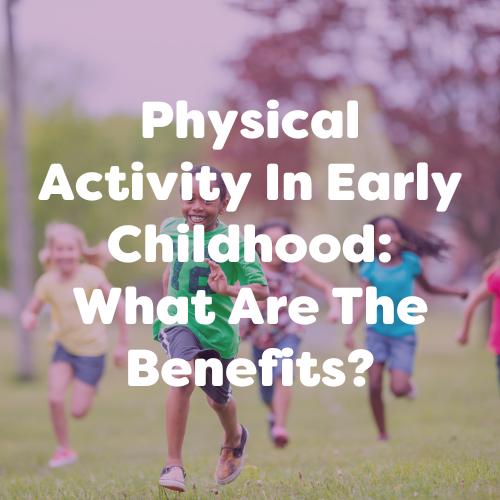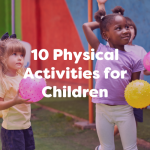“Children think better on their feet than on their seat”
– Mark Benden
Do active kids learn better? We all know how important it is to make sure that children are active to increase their physical development – but physical activity doesn’t only improve a child’s overall health and fitness! Many studies have shown that being physically active also enhances a child’s cognitive development and well-being, which has a positive effect on their learning and performance in school.
In this blog, we go over how physical activity and cognitive development are related and how physical activity can benefit children.
Here are 6 important positive effects that physical activity has on a child’s mental development and well-being:

Physical Activity Benefits for Cognitive Development
1. Boosts Brainpower and Cognitive Ability
When you engage in physical activity, the flow of blood to the brain increases. This greater flow of blood to the brain assists in the creation of new brain cells, which helps to improve the overall brain performance. It enhances the brain function, concentration, memory, thinking and cognitive skills, which are all vital for a child’s development.
2. Enhances Academic Learning
Research has shown that there is a positive correlation between a child’s performance in school and their level of physical fitness, illustrating that those who regularly exercise have a better ability to learn new things and are likely to perform better in school. Physical activity increases levels of a brain-derived protein, which improves focus, concentration and decision making. This has a positive impact on a child’s motivation, learning and productivity in school.
3. Elevates Mood and Reduces Anxiety
When you exercise, the body releases chemicals called endorphins. These endorphins are otherwise known as “feel good” hormones because they can lift your mood. Children may experience reductions in stress and anxiety when they engage in physical activity because the endorphins help to moderate the brain’s response to stress and elevate your mood. When a child’s overall health and fitness improves, it also helps to boost their self-esteem and gives them a sense of accomplishment and positivity.
4. Improves Social Skills
When children take part in sports, it gives them the opportunity to meet new people and create new friendships, enhancing a child’s language and communication skills. Children gain a different type of bond through sports, which gives them a sense of belonging and companionship, decreases loneliness and improves their social skills.
5. Enhances Creativity
Physical activity stimulates the brain activity, which helps to spark creative juices and overcome mental blocks. When children exercise, it can release bursts of creative thinking and enhance imagination. So when children have completed some form of physical activity, it would be beneficial to engage them in a creative activity, such as arts and crafts or creative writing, in the two hours succeeding it.
6. Helps Maintain Mental Health and Emotional Wellbeing
Children begin to establish behaviour patterns from an early age that will have important implications for their immediate and long-term mental health and well-being – so it is important to encourage an active and healthy lifestyle from an early age. By engaging children in regular physical activity from an early age, they are more likely to maintain a healthy mind and healthy lifestyle in the future.
Time for some brain-boosting physical activity!
Have you noticed a change in the children’s mental development with an increase in physical activity? Let us know your thoughts on Facebook.
Need inspiration? Explore more of our Physical Activity blog posts.
Make sure you offer plenty of opportunities for physical activity in your setting and explore our fantastic range of children’s PE & Sports Equipment.
References:
www.gov.uk – Government
www.mind.org.uk – Ken Ryan, Mind
www.huffingtonpost.com – Sophia Breene, Huffington Post
www.tes.com – Christina Quaine, TES




